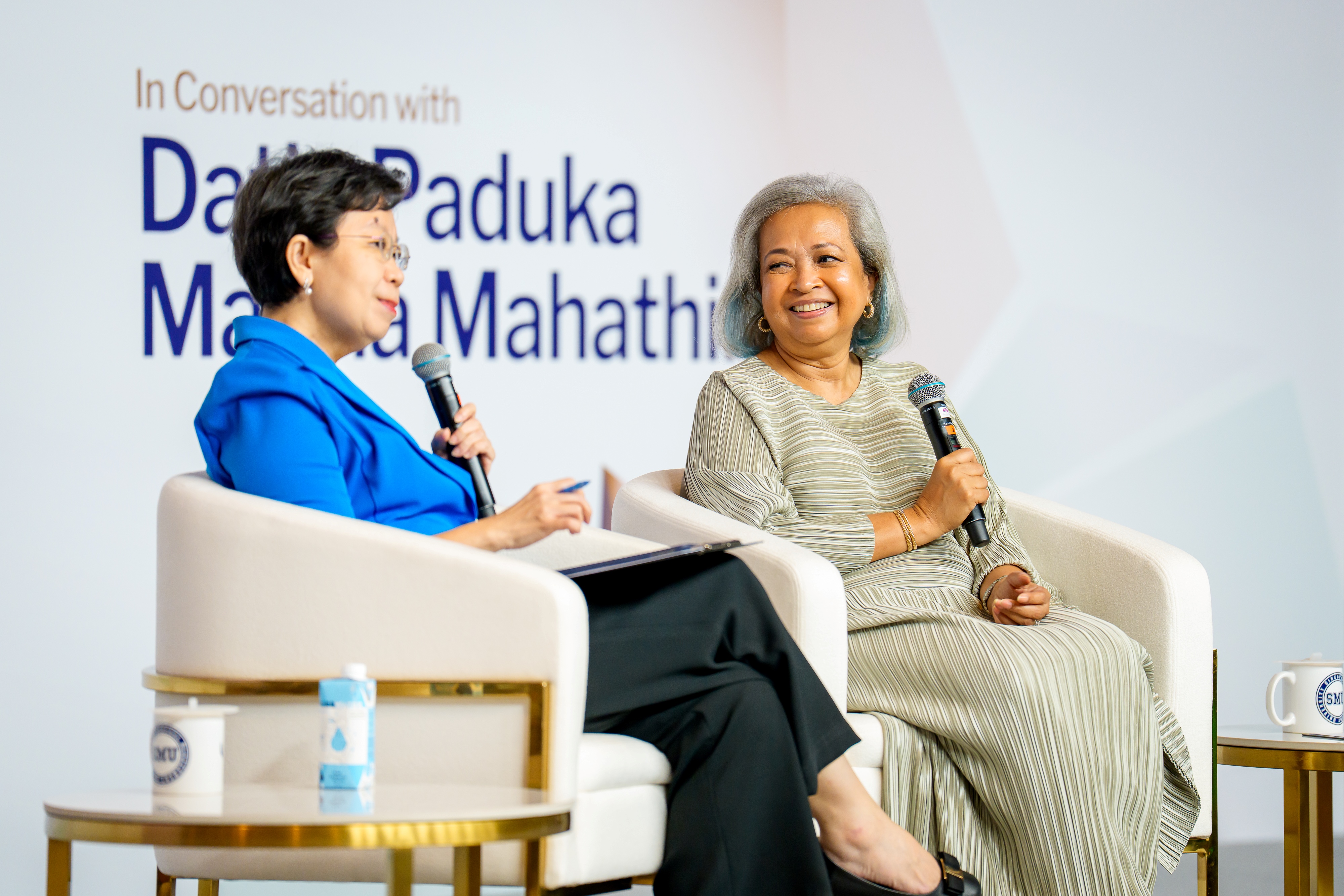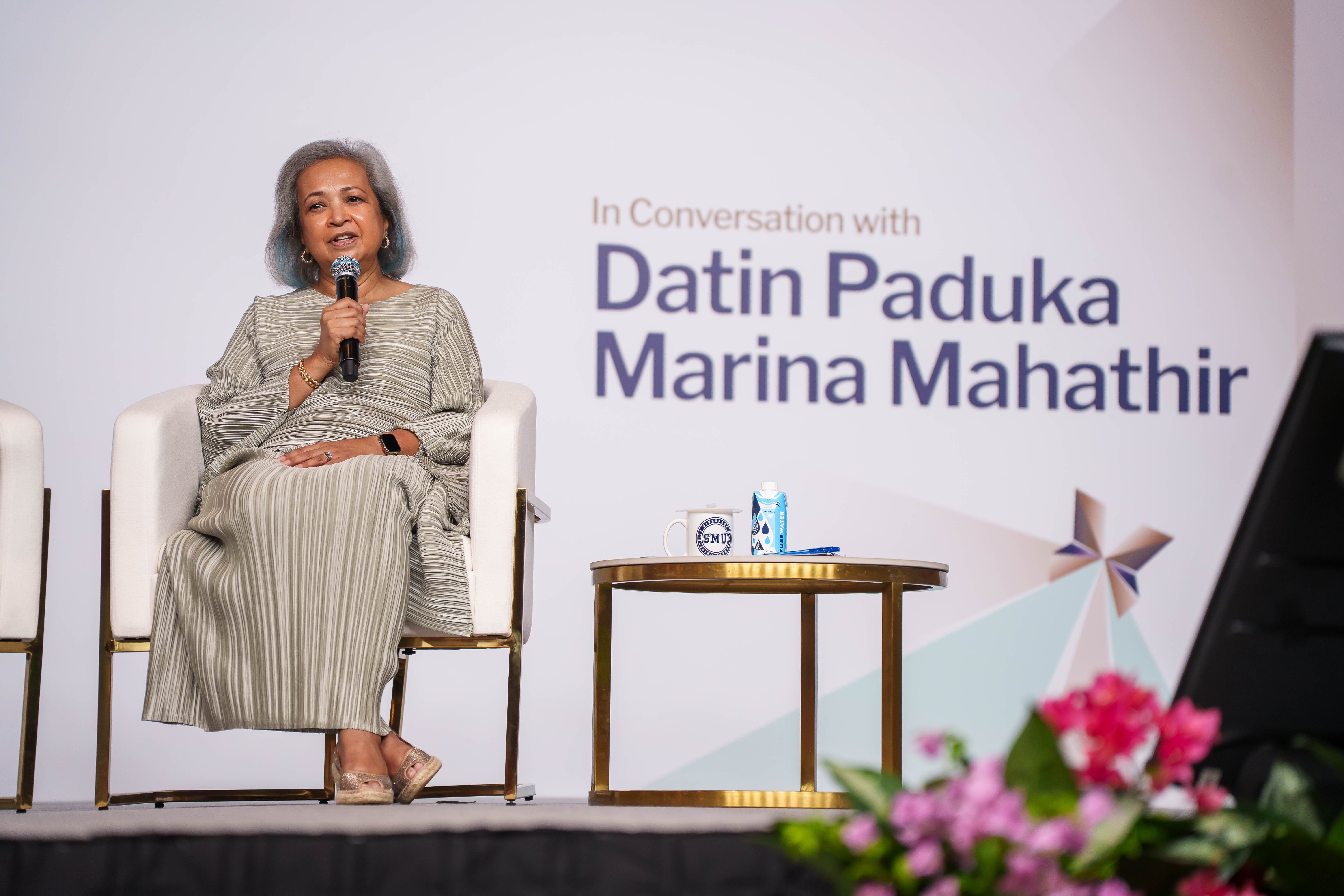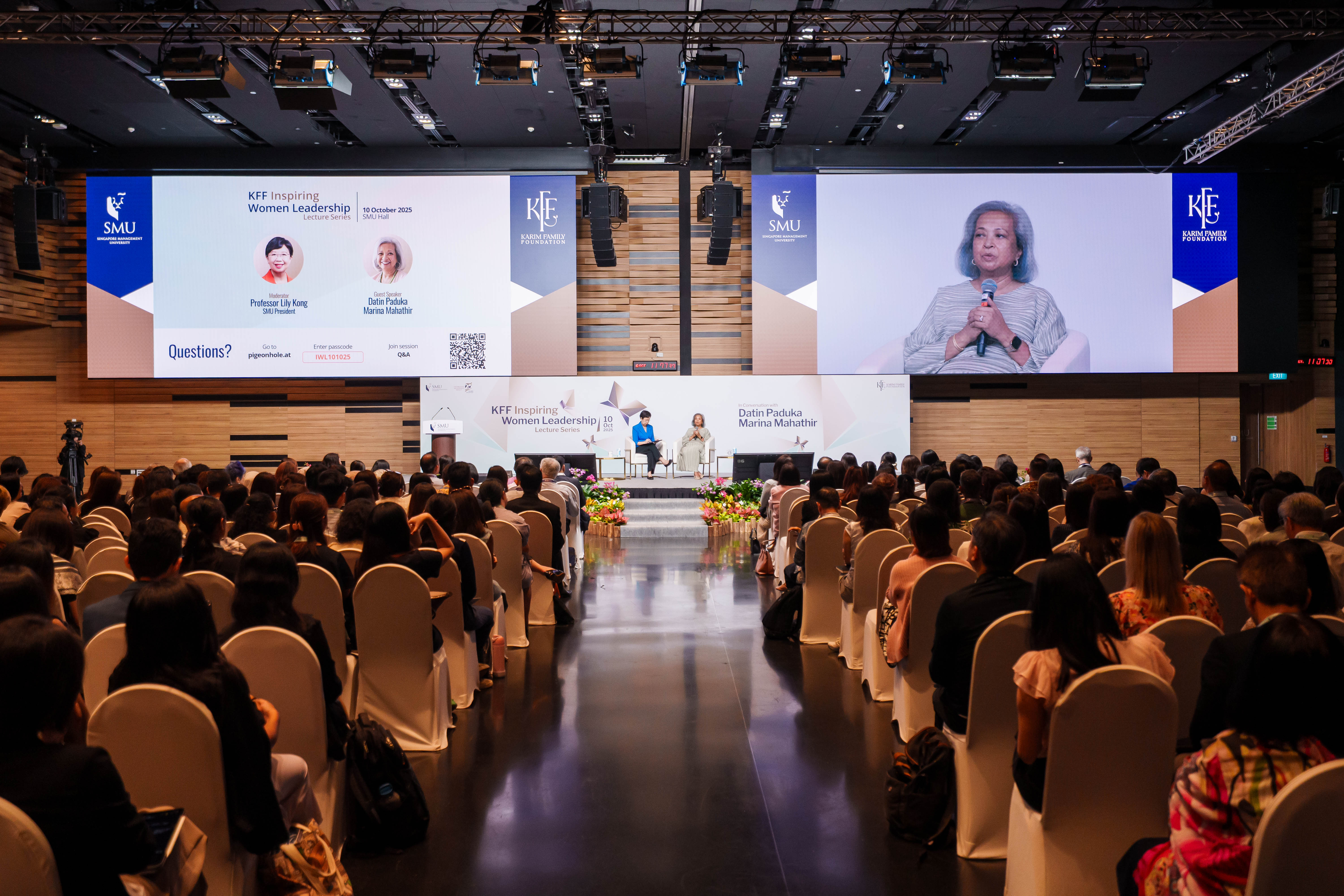Marina Mahathir and the responsibility of privilege

When Malaysia’s veteran activist Datin Paduka Marina Mahathir took to the stage at SMU Hall, she brought with her decades of fearless advocacy and a call to action: leadership is not a title, but a duty to uplift others.
She was speaking on 10 October 2025 to more than 300 government representatives, industry professionals from multiple sectors as well as SMU alumni, students and staff as part of the Karim Family Foundation Inspiring Women (KFF) Leadership Lecture Series 2025.
Over a 75-minute dialogue with SMU President Professor Lily Kong, she helped uncover how leadership may be leveraged to foster civic participation, address entrenched societal norms, and catalyse collective action.
SMU’s commitment to a broader mission
The KFF Inspiring Women Leadership Lecture Series is a collaboration between the Karim Family Foundation and SMU’s Office of Alumni Relations, forming part of the university’s 25th-anniversary commitment to nurturing women leaders. The goal of the series is not only to celebrate women’s achievements but also to catalyse meaningful conversations that address system barriers, expand opportunities, and cultivate allyship across genders.
The Foundation’s work is structured around four pillars: education, sport, arts and culture, and mental health. Each of these pillars is aimed at fostering meaningful social change.
By hosting Datin Paduka Marina Mahathir, SMU placed its community at the intersection of scholarship and conscience, reaffirming its belief that education has power only when coupled with civic purpose.
“We hope this series will empower more women to lead with compassion and purpose,” said Professor Kong, noting that Marina’s career reflects “the courage to speak truth with empathy”.
Leadership as service
The lecture explored Marina’s three decades of activism — from her early work in HIV/AIDS awareness to her leadership roles in Sisters in Islam and Musawah, a global movement advancing equality in Muslim family law.
Throughout the session, Marina underscored a principle central to SMU’s own ethos: leadership must be grounded in both knowledge and empathy.
“The first thing is, you have to be very well-versed in the subject,” she said. “You can’t advocate for people unless you know what you’re talking about.”
Her words were a gentle rebuke to superficial activism and a reminder that influence without understanding is merely noise.

The long road to change
Marina’s activism has always been defined by patience and persistence rather than spectacle. As president of the Malaysian AIDS Council from 1993 to 2005, she helped dismantle stigma surrounding HIV/AIDS - work that earned her the UN Person of the Year Award in 2010.
She later campaigned for women’s rights, including the constitutional reform allowing Malaysian mothers to pass citizenship to their children born abroad — a milestone that took years of sustained advocacy.
“That whole thing about how the arc of life bends towards justice — it’s true,” she said. “But you have to have the patience to understand that arc. It goes up, and then it will eventually resolve, as long as you don’t give up.”
Marina credits her parents, both doctors and volunteers, for instilling her sense of duty. Her mother, Tun Dr Siti Hasmah Mohamad Ali, chaired the Kedah Family Planning Association; her father, Dr Mahathir Mohamad, once led the state’s Anti-Tuberculosis Association.
“They never told us what we should do in life,” she recalled. “Just that we should go out to be good people, be mindful of others and try and help in whichever way.”
A lesson in letting go
Before closing, Marina shared the best advice she had ever received, a lesson from her mother that has shaped her approach to advocacy:
“She said to me, ‘You can’t play god. You just do what you can, and that’s it. You cannot determine everything about another person’s life.’”
Marina’s sharing was not merely a personal account of activism but a reflection on the way higher education can act as a catalyst for ethical leadership.
“You can’t determine everything about another person’s life,” she reminded the audience. “But you can try to make it a little fairer.”



